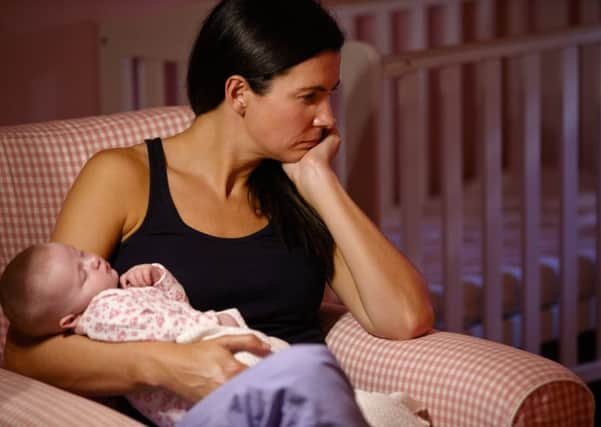SallyAnn Kelly: New mums' mental health matters too


It is perhaps more probable that new mothers will struggle to do their very best while coping with a bewildering, exhausting torrent of strange emotions, new responsibilities and fresh worries. Any mothers claiming to be in complete control during these life-changing months are possibly not being entirely truthful with themselves or their families.
It should be a happy time but, for many women, pregnancy and childbirth can be debilitating, anxious and impact on their mental health. That impact could be a sudden and catastrophic postpartum psychosis or it could happen slowly, as they withdraw, slipping into isolation, as they struggle to cope with stress and depression, alone and in silence.
Advertisement
Hide AdAdvertisement
Hide AdEncouraging mothers to talk about these feelings is one aim of the UK Maternal Mental Health Matters Awareness Week, to raise awareness and highlight the need for better help and support. Up to 30 per cent of new mothers will suffer some form of mental health issue – from stress and anxiety to clinical depression and psychosis – before their child is four. Sadly, provision of support services for mothers at risk is, at best, patchy and the mental health issues affecting new mothers are still going unrecognised, undiagnosed and untreated.
There are many good things in the Scottish Government’s recently-published ten-year strategy to improve the country’s mental health but it failed to properly address perinatal mental health care. Early intervention and prevention is key. Identifying and supporting mothers at risk before their mental health issues worsen should shape the planning and delivery of effective, innovative services, services like Aberlour’s Perinatal Befriending Support in Forth Valley.
Our service matches pregnant women and new mothers suffering mild to moderate mental health issues with a volunteer befriender, trained to listen without judging and help without interfering. The idea is simple but the impact is profound, improving the mental health of mothers and inspiring better, more loving relationships with their children. It is giving mothers crucial support during the first, most important months of their babies’ lives.
Research has confirmed again and again that what happens during those months will shape a child’s future in every way that matters. It almost goes without saying that the risk of mothers suffering mental health issues is exacerbated by poverty. There are no easy answers to closing the attainment gap, improving the life-chances of children growing up in our poorest postcodes, but supporting their mothers during these crucial months must be part of it.
The good mental health of Scots is every bit as important as physical health. The good mental health of our new mothers is arguably the most important of all. We need to talk about it and, after that, we need to do more to protect it.
SallyAnn Kelly is chief executive of the Aberlour Child Care Trust